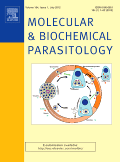
MOLECULAR AND BIOCHEMICAL PARASITOLOGY
Scope & Guideline
Innovating Diagnostic Methodologies for Parasitic Diseases.
Introduction
Aims and Scopes
- Molecular Mechanisms of Parasitism:
The journal emphasizes the exploration of molecular mechanisms that facilitate parasitic survival and reproduction within host organisms. This includes studies on gene expression, protein function, and metabolic pathways specific to parasites. - Host-Parasite Interactions:
Research articles focus on the dynamic interactions between parasites and their hosts, including immune responses, tissue invasion mechanisms, and metabolic exchanges that influence disease outcomes. - Emerging Therapeutic Strategies:
The journal publishes studies that investigate novel therapeutic approaches for parasitic infections, including drug discovery, vaccine development, and the use of molecular tools for targeting specific parasite functions. - Genomic and Proteomic Studies:
There is a strong emphasis on genomic and proteomic analyses of parasites to understand their biology better and identify potential drug targets. This includes the use of advanced sequencing technologies and bioinformatics. - Translational Research:
The journal encourages translational research that bridges basic science and clinical applications, aiming to address real-world challenges posed by parasitic diseases.
Trending and Emerging
- Integration of Machine Learning and AI:
There is an increasing trend towards utilizing machine learning and artificial intelligence to analyze complex biological data, enhance drug discovery, and predict parasite behavior in host environments. - Immunological Insights and Vaccine Development:
Research focusing on the immune responses to parasitic infections and the development of novel vaccines is gaining momentum, reflecting the urgent need for effective preventive measures against parasitic diseases. - MicroRNA and Epigenetic Studies:
The role of microRNAs and epigenetic modifications in the regulation of parasitic gene expression is emerging as a significant research area, providing insights into parasite adaptation and pathogenicity. - Omics Approaches:
The application of genomics, transcriptomics, proteomics, and metabolomics to study parasites is on the rise, allowing for comprehensive analyses of parasite biology and interactions with hosts. - Environmental and Ecological Influences on Parasitism:
There is an increasing focus on how environmental changes and ecological factors influence parasitic infections, reflecting a broader interest in understanding the dynamics of host-parasite relationships in changing ecosystems.
Declining or Waning
- Traditional Antiparasitic Drug Studies:
Research focused solely on traditional antiparasitic drugs without novel insights or approaches has decreased, as the field moves towards more innovative methodologies and drug discovery techniques. - Basic Taxonomic Studies:
While taxonomic studies remain important, there has been a noticeable decline in the publication of basic taxonomic papers. This may be due to a growing emphasis on molecular and genetic approaches that provide deeper insights into parasite biology. - Host Behavior Studies:
Research exploring host behavior in response to parasitic infections has waned, likely as the focus shifts towards molecular interactions and immune responses rather than behavioral aspects. - In Vivo Models with Limited Relevance:
The use of traditional in vivo models that do not adequately mimic human disease contexts has decreased, as researchers seek more relevant systems that better represent human parasitic infections.
Similar Journals
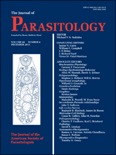
JOURNAL OF PARASITOLOGY
Illuminating the Complex World of ParasitesJOURNAL OF PARASITOLOGY is a leading scholarly publication dedicated to the field of parasitology, published by ALLEN PRESS INC. With an impactful history spanning from 1945 to 2024, this journal serves as a vital resource for researchers, professionals, and students interested in the complex interactions between parasites and their hosts. Operating from its base in the United States, this journal holds a Scopus quartile ranking of Q3 in Ecology, Evolution, Behavior and Systematics, Medicine (Miscellaneous), and Parasitology, providing a solid reflection of its impact within these categories. While currently not offering Open Access, the JOURNAL OF PARASITOLOGY continues to encourage the dissemination of pivotal research findings that contribute to our understanding of parasitic diseases and ecological systems, positioning it as an indispensable tool for knowledge advancement in the life sciences.
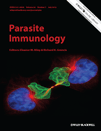
PARASITE IMMUNOLOGY
Exploring the Complexities of Immunological Defense.PARASITE IMMUNOLOGY, published by Wiley, is a leading journal in the field of immunology and parasitology, with an ISSN of 0141-9838 and E-ISSN of 1365-3024. Since its inception in 1979, it has played a pivotal role in advancing our understanding of host-parasite interactions, immunological responses to parasitic infections, and the mechanisms of immunological resistance. The journal is adeptly positioned within the academic community, currently holding a prestigious Q2 ranking in Parasitology and a Q3 ranking in Immunology for 2023, indicating its significant influence and relevance. Its comprehensive scope attracts a diverse readership, contributing to the discourse surrounding novel therapeutic approaches and emerging challenges in parasitic diseases. With a consistent convergence of research until 2024, PARASITE IMMUNOLOGY is an essential resource for researchers, professionals, and students seeking to deepen their knowledge and foster collaboration in these dynamic fields. Although it is not an open-access journal, the insights shared within its pages are invaluable for shaping future research trajectories.

SYSTEMATIC PARASITOLOGY
Championing high-quality research in parasitic sciences.SYSTEMATIC PARASITOLOGY, a premier academic journal published by Springer, serves as a vital resource in the field of parasitology. Since its inception in 1979, this journal has committed itself to advancing the understanding of parasitic organisms and their interactions with hosts, thus playing a significant role in both basic and applied research. With an impactful contribution to the scientific community—evidenced by its Scopus ranking and its position in the third quartile (Q3) within the Parasitology category—the journal provides a platform for high-quality, peer-reviewed research that spans a variety of topics from molecular biology to ecology. Although not currently open access, SYSTEMATIC PARASITOLOGY remains essential for researchers, professionals, and students who seek to stay at the forefront of parasitological studies and contribute to ongoing developments in the domain. Published in the Netherlands, it continues to attract a diverse international readership, fostering a collaborative scientific environment.

BIOCHIMICA ET BIOPHYSICA ACTA-GENERAL SUBJECTS
Pioneering Insights in Biochemistry and BiophysicsBIOCHIMICA ET BIOPHYSICA ACTA-GENERAL SUBJECTS, published by Elsevier, serves as a pivotal journal in the fields of biochemistry and biophysics, with a long-standing history dating back to 1956. This esteemed publication, bearing the ISSN 0304-4165 and E-ISSN 1872-8006, continuously contributes to advancing our understanding of complex biological processes through rigorous research articles and reviews. It notably holds a distinguished position with a Q2 classification in Biochemistry and a Q1 ranking in Biophysics for 2023, reflecting its high relevance and impact within these scientific domains. The journal is also recognized within the Scopus metrics, taking a rank of #40 out of 152 in Biophysics and #173 out of 438 in Biochemistry, thus placing it in the 74th and 60th percentiles respectively. Academics and professionals in the life sciences will find this journal an essential resource for current research, cutting-edge techniques, and comprehensive reviews aimed at enhancing the understanding of biological functions. While BIOCHIMICA ET BIOPHYSICA ACTA is not an open-access journal, it remains a cornerstone publication for those seeking to stay at the forefront of biochemical and biophysical research.
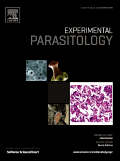
EXPERIMENTAL PARASITOLOGY
Innovative Research Driving Solutions in Parasitic InfectionsEXPERIMENTAL PARASITOLOGY, published by Academic Press Inc Elsevier Science, is a prominent journal in the domains of immunology, infectious diseases, and parasitology, with roots extending back to 1951. This journal, bearing the ISSN 0014-4894 and E-ISSN 1090-2449, serves as a critical conduit for sharing advancements in the understanding of parasite biology, host-parasite interactions, and the immunological responses elicited by parasitic infections. Although it currently operates under a subscription model without open access options, its rigorous scholarly content is vital for researchers and practitioners alike looking to stay informed on the latest developments and applications in the field. With a recent categorization as Q3 in key scientific categories, including Infectious Diseases and Parasitology, and a Scopus ranking solidifying its relevance, EXPERIMENTAL PARASITOLOGY is an essential resource for those committed to advancing knowledge and solutions to parasitic diseases.
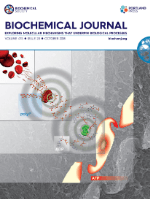
BIOCHEMICAL JOURNAL
Navigating the Complexities of Life at the Molecular LevelBIOCHEMICAL JOURNAL, published by Portland Press Ltd, stands as a leading publication in the fields of Biochemistry, Cell Biology, and Molecular Biology, reflecting a commitment to advancing scientific knowledge since its inception in 1945. With a distinguished Q1 ranking across these categories and impressive Scopus rankings, the journal serves as an invaluable resource for researchers, professionals, and students alike, facilitating critical discoveries and innovative research practices. Although not currently offering open access, the journal provides a platform for high-quality peer-reviewed articles, ensuring rigorous standards in the dissemination of biochemical research. Spanning over seven decades and continuing through to 2024, the BIOCHEMICAL JOURNAL fosters an environment where cutting-edge biochemical research thrives, supporting the global scientific community's efforts to address complex biological questions and enhance our understanding of fundamental cellular processes.

KOREAN JOURNAL OF PARASITOLOGY
Fostering Collaboration in Parasitic Disease ResearchKorean Journal of Parasitology is a respected publication in the field of parasitology, originating from the esteemed Korean Society of Parasitology and affiliated with Seoul National University College of Medicine. Established in 1977, this journal focuses on disseminating significant research findings related to parasitic diseases, their vectors, and control measures, serving as a vital resource for researchers, medical professionals, and students alike. Although coverage in Scopus has been discontinued as of 2022, the journal remains a valuable platform for in-depth studies within the areas of Infectious Diseases and Immunology. With an ISSN of 0023-4001 and an E-ISSN of 1738-0006, the journal promotes open access to enhance academic sharing. Despite its current Scopus rankings, which place it in the 38th percentile for Infectious Diseases and 37th percentile for Immunology and Microbiology (Parasitology), it continues to contribute to the global discourse on parasitological research, encouraging collaboration and emphasizing the importance of this field in public health.

TRENDS IN BIOCHEMICAL SCIENCES
Connecting Researchers with Cutting-Edge ScienceTRENDS IN BIOCHEMICAL SCIENCES is a premier academic journal published by CELL PRESS, focusing on the latest advancements and insights in the dynamic fields of biochemistry and molecular biology. With an ISSN of 0968-0004 and an E-ISSN of 1362-4326, this journal has established itself as a leading source of high-impact research, boasting an impressive Q1 category ranking in both Biochemistry and Molecular Biology as of 2023. The journal's Scopus Ranks further highlight its significance, placing it in the top 3% and 4% of its respective fields, emphasizing its role as a vital platform for disseminating innovative research. Published since 1976 and continuing through 2024, TRENDS IN BIOCHEMICAL SCIENCES provides a comprehensive overview of the latest trends, methods, and applications, helping researchers, professionals, and students stay at the forefront of their disciplines. Although it offers traditional access options, the journal's rich content and authoritative analysis make it a must-read for those pursuing cutting-edge biochemical research.

Comparative Biochemistry and Physiology D-Genomics & Proteomics
Elevating Molecular Science: Your Gateway to Cutting-Edge ResearchComparative Biochemistry and Physiology D-Genomics & Proteomics, published by Elsevier Science Inc, is a premier journal in the realm of molecular biology and comparative physiology, with a focus on genomic and proteomic sciences. Recognized for its high-impact contributions, it holds a Q1 ranking in Animal Science and Zoology and was established with the vision of bridging gaps in our understanding of biological systems through experimental and comparative approaches. With an impressive Scopus ranking, this journal not only ranks among the top 12% in Animal Science and Zoology but also demonstrates commendable standings across various categories including Aquatic Science and Molecular Biology. The journal’s commitment to disseminating high-quality research makes it an essential resource for researchers, professionals, and students alike, allowing them to access critical studies that influence advancements in genomics and proteomics. While it operates under a traditional subscription model, its impactful findings are crucial for those aiming to enrich their knowledge and research capabilities in these pivotal scientific fields. Join us in exploring the transformative insights and developments that this esteemed journal has to offer for the study of genomics and proteomics.

Annual Review of Biochemistry
Bridging Research and Discovery in Life SciencesAnnual Review of Biochemistry is a premier publication in the field of biochemistry, renowned for its comprehensive and critical reviews that collate significant advancements and insights since its inception in 1946. Published by Annual Reviews in the United States, this journal maintains a prestigious position within the academic community, boasting a Q1 ranking in the biochemistry category for 2023, with an impressive Scopus rank of #4 out of 438, placing it in the top 1% of its field. With a commitment to excellence, it serves as an essential resource for researchers, professionals, and students striving to stay at the forefront of biochemical research. While the journal does not operate on an open-access model, it continues to provide key insights and knowledge that fuel innovation and discovery in the life sciences. As it converges research from various eras up to 2024, Annual Review of Biochemistry remains a vital contributor to the development of molecular biology and genetics, catering to the needs of a diverse readership keen on advancing their understanding and expertise in biochemistry.